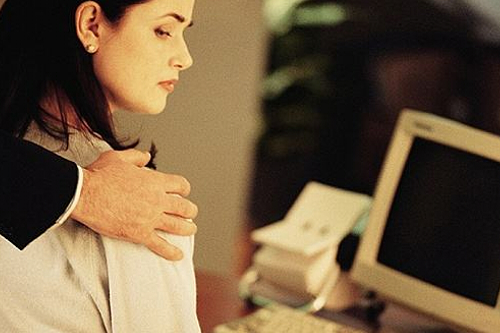Are Americans Really Nicer to Each Other at Work?
Anne Fisher
So, you started your day checking social media sites or chat rooms where vitriol-laced personal attacks, especially about politics, have become the norm. Then, when you stopped off to pick up a few things on your way to work, some guy with too many items in the express checkout line ran his cart over your toe with no hint of an apology. By the time a fellow motorist (or several) had cut you off in traffic, perhaps with a rude hand gesture or two, wasn’t it a relief to get to the office?
If you’re like most other Americans, the answer is a definite yes. A survey of 1,481 working adults earlier this year, by public relations firm Weber Shandwick and KRC Research, found that 93% think public rudeness is on the rise, and most (69%) see that as a “major problem.” Moreover, it’s getting worse. Weber Shandwick has conducted this survey annually since 2010, and found in 2016 that people reported encountering an average of 6.2 instances per week of obnoxious behavior or uncalled-for speech. Just two years later, the number of weekly “incidents of incivility” had shot up to 10.6.
The exception, it seems, is the workplace. More than 90% of us see work as a “civility safety zone,” the study says, up somewhat from 86% two years ago. Not only that, but workplaces are apparently getting more civil as time goes by. For instance, 2011, when companies were still reeling from the Great Recession, was a very rude year. Well over one in three employees (43%) reported being on the receiving end of one or more “incidents of incivility.” By 2018, that had declined to 29% – markedly lower than the number who said they have run into rudeness online (39%), while shopping (39%), or while driving (also 39%).

Why are people nicer to each other at work than elsewhere? It’s partly simple self-interest, of course. Less-than-courteous driving or letting loose with an online screed is, after all, unlikely to cost anyone his or her next raise or promotion, while being on one’s best behavior in any professional setting is generally a common-sense career move. It’s no coincidence that, while Facebook and Twitter are crawling with trolls, LinkedIn is not.
But the research also suggests there’s more to it. Recent trends in how companies operate seem to have the welcome (if inadvertent) effect of encouraging coworkers to play nice. “CEOs, and managers at all levels, now are focused on collaboration, and on creating a collegial ‘Best Places to Work’ culture, in order to attract the best available talent,” observes Leslie Gaines-Ross, Weber Shandwick’s chief reputation strategist, who has been overseeing the civility surveys for the past decade. “That emphasis on teamwork really requires civil interactions between people.”
Nonetheless, even in workplaces where courtesy rules, a significant minority of employees believe there’s more to be done. Asked what changes they’d like to see by 2025, 32% said that gratuitous nastiness “will be considered a form of harassment,” and 32% hope that “civility training will be mandatory.”








